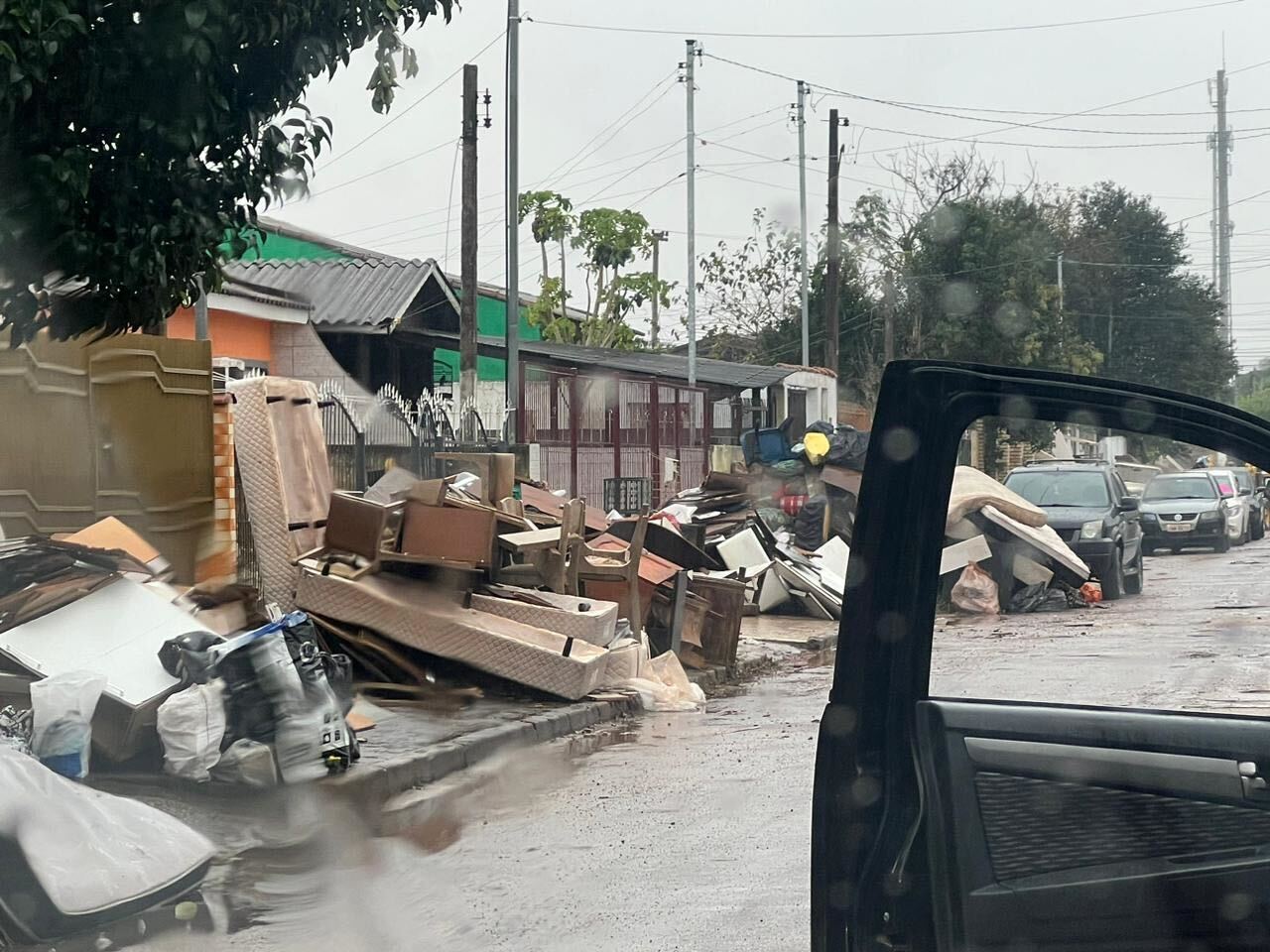Heavy rains brought on by a strong El Nino cycle hit the Rio Grande do Sul state in southern Brazil last month, an effect the World Meteorological Organization reported to be exacerbated by climate change. After the onset of the rains, Brazilian students at Stanford started fundraising efforts to provide relief to the people back home.
The tragedy has affected more than 2.3 million people, with a reported 161 dead. “Once the water goes down, we will get a more accurate count of those who died,” said Silvio Frison MSx ’24, who is from Rio Grande do Sul.
Bruno Rigonatti MBA ’24, a Brazilian international student, began a GoFundMe in partnership with the Rio Grande do Sul-based non-profit Instituto Cultural Floresta, which primarily works on public security crisis management. “I noticed how dire the situation was and immediately reached out to friends in the Stanford community who are from the region to make sure their families were okay,” he said.
The GoFundMe started by Rigonatti has raised over $18,000 to be contributed towards the flood relief efforts. Students hope to more than double that within the next few weeks.
The Stanford community comprised the first donors to the GoFundMe before donations from the Bay Area more broadly began to flow in as well. Now, the fundraiser has received donations from universities across the US, as well as in Canada and Europe. The donations are being used to procure boats and jet skis to rescue people, as well as provide food and water to those affected by the floods.
Frison was drawn to help the flood relief effort as he saw his state impacted. “Initially I was upset that I was not in Brazil. Then I started to do whatever I could to help out from here,” he said. Beyond helping with the fundraising efforts, Frison has also been working with rice farmers in Brazil to provide pumps that can suck out water from heavily affected areas.
Other Brazilian students on campus have been trying to spread the word with the community using social media accounts. Lara Franciulli ’25, a Brazilian international student, shared that her social media has been, “filled with information about the floods,” but she has not felt the same support has been provided by the Stanford community.
“Maybe the resident community could organize a rally for climate change in general. Maybe we could have a course about floods and climate change,” she said.
The Doerr School of Sustainability offers courses related to climate change and the El Nino effect, and funds research to “elevate awareness, broaden discourse, and inspire action related to climate change solutions and environmental justice,” wrote Mara Vandlik, spokesperson for the Doerr School of Sustainability, in a statement to The Daily.
In a session of Energy 203: Stanford Climate Ventures on May 8, João Almeida MBA ’25, who is Brazilian, joined to discuss the recent floods. He used the class, which covers a project-based approach to tackling climate change, as a platform to urge the Stanford community to support the GoFundMe.
Praising Almeida, whose effort to raise awareness was lauded in a Brazilian WhatsApp group chat, Rigonatti said, “He didn’t even ask for authorization. He just cared so much about it and wanted to be supportive and he did it.”
The University is “in the process of reaching out to Stanford students who we believe to be most affected by the disastrous flooding events in Brazil and Houston/Harris County, Texas, based on their registered home address,” wrote University spokesperson Luisa Rapport. Houston has experienced heavy rain and storms over the past week.
“We want to ensure that these students are supported to the fullest extent possible, based on their needs,” Rapport wrote.
Echoing the University’s response, Elsa Gontrum, Associate Dean and Director of the Bechtel International Center, sent an email to the Brazilian international community to offer support earlier this month.
“All of us at Bechtel International Center would like to express our sorrow for the lives lost and those missing and impacted as a result of the flooding in the state of Rio Grande do Sol. We hope your family and friends are safe. Please let us know if we can provide any assistance to you,” Gontrum wrote.
Rigonatti said, “There is still a lot of attention required for the region that is affected but honestly I am just really happy that the Stanford community and the Silicon Valley communities are listening.”
